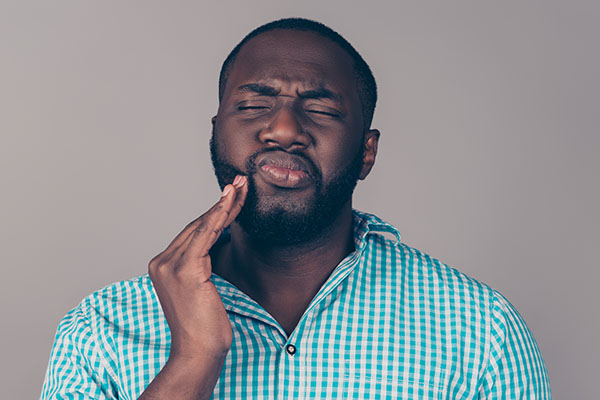Warning Signs of Sleep Apnea to Tell Your Dentist

Obstructive sleep apnea is a condition where you stop breathing many times during the night. This can have some serious consequences for your health. This can lead to sleepiness during the day because you are not sleeping deeply throughout the night. You are also at a higher risk of high blood pressure and heart failure. If you have sleep apnea, then you might be suffering from some types of dental problems.
Cracked teeth
People who have sleep apnea are more likely to clench or grind their teeth during the night. This is a condition that is known as bruxism. About 25% of people who have sleep apnea clench or grind their teeth during the night. This can cause the teeth to become more sensitive over time. In some cases, it can also cause the teeth to crack or to become damaged.
This can increase a patient’s risk of cavities. Patients who have sensitive teeth may have bruxism. Sometimes, having tight or tired muscles in the jaw is also a sign of bruxism. These are all important signs for patients to talk to the dentist about.
Pain in the jaw
Patients who have sleep apnea are more likely to have pain disorders that are associated with the jaw. This can include TMJ or TMD disorders. People who have problems with moving the jawbones or opening the jaw might have this condition as well. When a patient stops breathing, the jaw will automatically clamp down to stop the airway from becoming blocked. When this happens many times during the night, TMJ and TMD disorders can result.
Increased number of cavities
People who have sleep apnea often breathe through the mouth. This is a reflex from the body that is designed to take in more air automatically. However, breathing through the mouth can dry out the mouth and cause the protective saliva to evaporate. A dentist might notice that a patient has more cavities and erosion to the enamel.
Chronic headaches
There are many reasons why a patient with sleep apnea might experience headaches. For example, the constant grinding can cause the patient to overuse the muscles associated with the area. When the oxygen levels in the blood decrease from the lack of breathing, headaches can also result. Carbon dioxide can also build up in the body from sleep apnea episodes, which can cause an individual to wake up with a pounding headache.
Visit a dentist today
Obstructive sleep apnea can cause several oral health conditions that you should talk to your dentist about. Cavities, enamel erosion, TMJ disorders and tooth sensitivity can all result from sleep apnea. The good news is that controlling your sleep apnea can help to eliminate or reduce these problems. Talking to your dentist about these problems can help your dentist find a good treatment option. It is also a good idea to talk to your dentist about treatment options that can help to reverse these symptoms.
Request an appointment here: https://www.drelloway.com or call Randal S. Elloway DDS, Inc at (530) 527-6777 for an appointment in our Red Bluff office.
Check out what others are saying about our services on Yelp: Read our Yelp reviews.
Related Posts
When you reach your 20s, wisdom teeth should emerge. This third set of molars come in at the back of the mouth. You will likely have two of these teeth on the top and bottom, though some people have fewer than four. Commonly, dentists recommend getting these removed, and it is not difficult to see…
Many dentists recommend that patients have their wisdom teeth, or the third set of molars, extracted during the teenage years. Wisdom teeth extraction is often recommended for patients whose teeth have been impacted or are causing problems such as crowding, gum inflammation, or pain in the mouth. Extraction can prevent complications for the gums, teeth,…
Full mouth reconstruction can restore the smile's functionality, appearance, and health even when multiple issues are at play. This treatment includes various dental procedures designed to address severe oral health concerns or extensive damage to the teeth, gums, and jaw. Often performed by a general dentist or prosthodontist, it delivers transformative results, helping patients achieve…
If your wisdom teeth are impacted, it may be time to think about visiting a dentist. Extracting these teeth can help you avoid serious oral health problems and cosmetic concerns. Not everyone requires the removal of these molars, but your dentist can determine whether this makes sense for you. Extracting these teeth can keep more…


